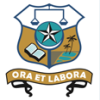How to become a Financial Controller
Overview, Courses, Exam, Colleges, Pathways, Salary

Overview
Who is Financial Controller ?
Financial Controllers (FC) is an organization’s lead accountant, directing the preparation of financial reports that summarize, analyse, and forecast the company’s financial position, with the help of income statements, balance sheets, analyses of future earnings or expenses, and financial information. They are also responsible for organizations’ financial planning, debt financing, and budget management. They establish financial rules; select accounting methods, and ensure that Generally Accepted Accounting Principles (GAAP) are followed in the organization.
Typical day at work
What does Financial Controller do?
Oversee personnel conducting financial recording, bookkeeping, billing, collections, payroll, and budgeting tasks
Organize and direct all or some of an organisation's financial planning, budgeting, purchasing or investment duties
Establish internal control protocols, instructions, and procedures for tasks such as management and administration of budgets, cash and credit, and accounting
Prepare financial statements, reports of business activities, forecasts of financial position, annual budgets, or regulatory agencies required reports
Guide and assist other units of organization with respect to accounting and budgeting protocols and procedures for effective control and use of financial resources
Analyse the financial information of past, current and anticipated operations to recognize opportunities for growth and areas where change is required
Advise executives on financial goals, strategies, and decisions for the short and long term
Track financial operations and information, such as cash flow and reserve rates, to confirm compliance with all regulatory and legal requirements
Evaluate the requirements for fund acquisition and surplus investment and make relevant suggestions
Build and sustain relationships with finance, insurance, and external accounting personnel to promote financial activities
Perform or direct organization accounts’ audits and financial transactions to guarantee compliance with federal regulations
File and submit annual tax reports or compile financial details so that tax returns can be filled out by qualified accountants
Recognize financial risks and areas of improvement to prevent mistakes and increase profits
Supervise the accounting, audit, and budget departments of company
Supervise the completion of internal control audits to look out for errors or fraud
Manage accounting procedure and documentation of policies
Assist in resolving complex accounting concerns
Create and enforce operational strategy for day-to-day activity of finance team
Direct payables, receivables, payroll, controls, and interdepartmental communications
Draft special reports as requested by governmental business regulatory agencies
Oversee financial statements and annual reports
Evaluate organization’s performance against internal and external benchmarks
Organize and archive financial statements
Monitor the bank balance of the organization
Approve and track invoices
Prepare financial projections
Formulate monthly sales and use tax returns
Supervise the creation of monthly, quarterly, and end-of-year financial statements.
Abilities and Aptitude needed
What are the skills, abilities & aptitude needed to become Financial Controller?
Financial Controller must have knowledge in and ability to understand macroeconomics, accountancy, business methods, and risk avoidance. To begin with financial literacy, confidence with numbers, impeccable research, quantitative and analytical skills is a prerequisite to be successful in this career. One should also have proficiency in Microsoft Office, especially Microsoft Excel and VBA. Thus, strong, professional communication and presentation skills will also benefit.
A person taking up a career in this field must have high resilience and the ability to face the consequences when things get difficult. The career is suited to confident individuals with endless enthusiasm, high achievers who are ambitious and competitive with a supreme work ethic and the ability to handle immense pressure. Finance Directors must be able to manage both time and projects well which requires commitment, dedication, and high energy.
Along with excellent team leadership and teamwork skills, one needs to have the ability to work in a fast-paced environment, having long work hours with minimal supervision. To succeed in this profession, individual need to have eye for detail and ability to organize and track overlapping tasks.
The strong people, negotiation, and persuasion skills will aid in the job of a Director of Finance. The knowledge of deal structuring and closing principals will be helpful. Needless to say, they will also need good judgement and decision making skills to make informed choices.
Pathways
How to become an Financial Controller?
Entrance Exam
Entrance Exam for Financial Controller ?
Courses
Which course I can pursue?
Best Colleges
Which are the best colleges to attend to become an Financial Controller?
Industries
Which Industries are open for Financial Controller?
internship
Are there internships available for Financial Controller?
Career outlook
What does the future look like for Financial Controller?
There are various ways to advance into a Financial Controller position. At entry level, one may work in accounting or auditing, then advancing to an accounting manager, further to an assistant controller position, and finally working in the position of Financial Controller. One can even further to the position of Chief Financial Officer (CFO).
A Financial Controller usually works in startups, small and large organizations, nonprofit groups, and in the public or government sector. They work full-time, and most of the times over-time, in office settings in the banking, manufacturing, or insurance industries.
They may have to travel occasionally, especially if a corporation frequently requires compiling mergers and acquisitions information or there are various branches of an organization.







